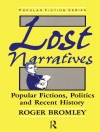Since its emergence in the late twentieth century, climate fiction—or cli-fi—has concerned itself as much with economic injustice and popular revolt as with rising seas and soaring temperatures. Indeed, with its insistent focus on redressing social disparities, cli-fi might reasonably be classified as a form of protest literature. As environmental crises escalate and inequality intensifies, literary writers and scholars alike have increasingly scrutinized the dual exploitations of the earth’s ecosystems and the socioeconomically disadvantaged.
Cli-Fi and Class focuses on the representation of class dynamics in climate-change narratives. With fifteen essays on the intersection of the economic and the ecological—addressing works ranging from the novels of Joseph Conrad, Cormac Mc Carthy, and Octavia Butler to the film Black Panther and the Broadway musical Hadestown —this collection unpacks the complex ways economic exploitation impacts planetary well-being, and the ways climatic change shapes those inequities in turn.
Inhoudsopgave
Acknowledgments
Introduction
Part I. Class Structure and Resource Extraction
Hadestown and Other Myths for the Anthropocene: Company Towns and Proletarian Traditions in US Climate Fiction / Jason de Lara Molesky
Burnout: Cli-Fi and Exhaustion / Lisa Ottum
Resource Utopia and Dystopia: Excavating Class in Afrofuturist Cli-Fi Film / Martín Premoli and B. Jamieson Stanley
Dreaming a Decolonized Climate: Indigenous Technologies and Relations of Class and Kinship in Cherie Dimaline’s The Marrow Thieves / Jessica Cory
Part II. Class Differentiation and Climate Risk
Climate-Change Fiction and Poverty Studies: Kingsolver’s Flight Behavior, Diaz’s ‘Monstro, ‘ and Bacigalupi’s ‘The Tamarisk Hunter’ / Debra J. Rosenthal
Learning to Survive: Place-Based Education in Strange as This Weather Has Been and Parable of the Sower / Jennifer Horwitz
Settler Apocalypses: Race, Class, and the Erasure of Indigenous Resilience in Alaskan Cli-Fi / Jennifer Schell
Black: A Speculative Almanac for the End of the World / Kimberly Bain
Part III. Class Privilege and Climate Anxiety
Class and Revolution in the Climate Fictions of Kim Stanley Robinson: Transitions to Postcapitalism / Andrew Milner
Heartland of Darkness: Nostalgia and Class in the Climate Fiction of Paolo Bacigalupi / Jeffrey M. Brown
Whose Odds?: The Absence of Climate Justice in American Climate Fiction of the 2000s and 2010s / Matthew Schneider-Mayerson
Cli-Fi and the Crisis of the Middle Class / Magdalena Maczynska
Homelessness in Lauren Groff’s Florida Fiction: Climate Change and Displacement / Teresa A. Goddu
Epilogue: What has Changed Since Anthropocene Fictions? / Adam Trexler
Notes on Contributors
Index
Over de auteur
Debra J. Rosenthal is Professor of English at John Carroll University and the author of Performatively Speaking: Speech and Action in Antebellum American Literature. Jason de Lara Molesky is a postdoctoral fellow at the Mahindra Humanities Center at Harvard University and Assistant Professor of English at Saint Louis University.












